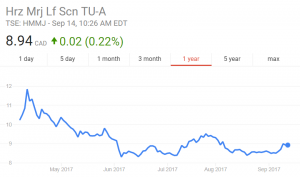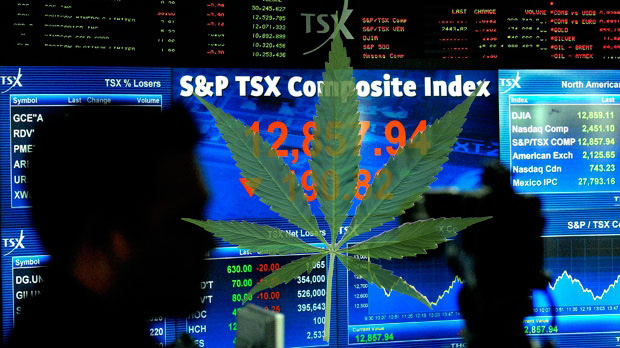Canada stock exchange regulators appear to be suffering from a pot-hangover, as exchange execs and regulators re-visit criteria for cannabis share listings. Its a high-flying industry for sure; 69 publicly-traded cannabis companies with aggregate market cap of USD $6.4bil have their shares listed on the Toronto Stock Exchange, the smaller TSX Venture Exchange and the Canadian Securities Exchange. According to private placement specialist firm Prospectus.com, during the most recent 2-3 years, upwards of 300 ‘established entities’ have advanced private placement offerings that have raised nearly $1bil from private equity firms, venture capital shops and other sophisticated investors. When considering that North American sales of legal cannabis, which generated $6.7 bil in 2016 is growing at a rate of 30% YoY, its no surprise that cannabis entrepreneurs and their investors are stoking for public share listings, an avenue that provides a publicly-traded currency for them to expand and acquire others, and enables investors to benefit from greater liquidity of their holdings. That said, according to senior attorneys at Phoenix OTC Services, “Cannabis share listings are certainly being sought by a broad spectrum of private companies, but Canada stock exchanges, which host the majority of public cannabis companies, appear to be suffering from a “pot hangover” as senior exchange executives and Canadian regulators are now weighing a walk-back on listing criteria to address fears these companies could be violating US securities laws.”

While some ETF industry players continue to plot courses behind the scenes to follow the path of TSE-listed Horizons Medical Marijuana Life Sciences ETF (TSE: HMMJ) in an effort to create their own cannabis-flavored exchange-traded funds, some cannabis industry legal experts are bracing for Canadian securities regulators to try and “put the genie back in the bowl” and possibly de-list companies that are viewed to be running afoul of US laws.
According to 14 Sept story in the WSJ, the parent company of the Toronto Stock Exchange and an umbrella organization of Canadian securities regulators are looking at cannabis companies with U.S. operations—including growers, medical-marijuana distributors and pharmaceutical firms whose products include marijuana ingredients—to determine whether trading in their shares should be allowed to continue on Canadian exchanges.
The regulatory attention comes as the Toronto Stock Exchange and its smaller rival, the Canadian Securities Exchange, have been actively courting marijuana company listings from around the world. At present, roughly half the trading activity on the Canadian Securities Exchange is sourced from marijuana-based businesses, a high-growth sector that is expected to become a $50 bil global industry within the next 7-10 years. (Source: WSJ)
If you’ve got a hot insider tip, a bright idea, or if you’d like to get visibility for your brand through MarketsMuse via subliminal content marketing, advertorial, blatant shout-out, spotlight article, news release etc., please reach out to our Senior Editor via cmo@marketsmuse.com.

